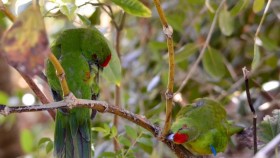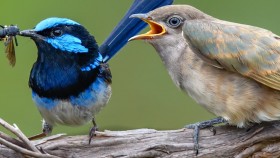Let's make konzo disappear
There is a crippling disease slowly spreading through central and east Africa. It's called konzo and it attacks mainly young women and children, quite suddenly, causing irreversible paralysis of the legs.
The cause of this disease is malnutrition and consumption of high levels of a poisonous cyanide compound found in cassava, a staple food for over 600 million people. The plant is non-lethal for many, however, when it is all you have to eat, and you are already malnourished, then suddenly konzo can occur.
ANU Giving Day, Wednesday 21 September
On Wednesday 21 September, ANU will hold a Giving Day with a goal of raising $100,000 to help stop konzo from spreading further.
ANU Emeritus Fellow Dr Howard Bradbury AM has spent 26 years researching and working with African communities to find a solution - the 'wetting method'. Dr Bradbury's discovery is a simple solution to a devastating problem.
You can help eradicate konzo by making a tax deductible gift today.
Through Dr Bradbury's work, konzo has now been prevented in 16 villages in Africa. We have already halved the intervention time to teach this simple solution.
By continuing to work with health practitioners in effected African communities, your gift will go directly to support educational programs that teach villages the 'wetting method' to prevent new outbreaks occurring.
We are making an impact.
Without the necessary funds to help Dr Bradbury and his team teach African communities to implement this life-changing discovery, konzo will continue to paralyse women and children in Africa.
Donate to Konzo
Update: Fundraising results
As of October 2016, more than $84,000 has been raised for Konzo prevention during the ANU giving day campaign, from 806 donors.








